PRIDE: From heaviness to hope
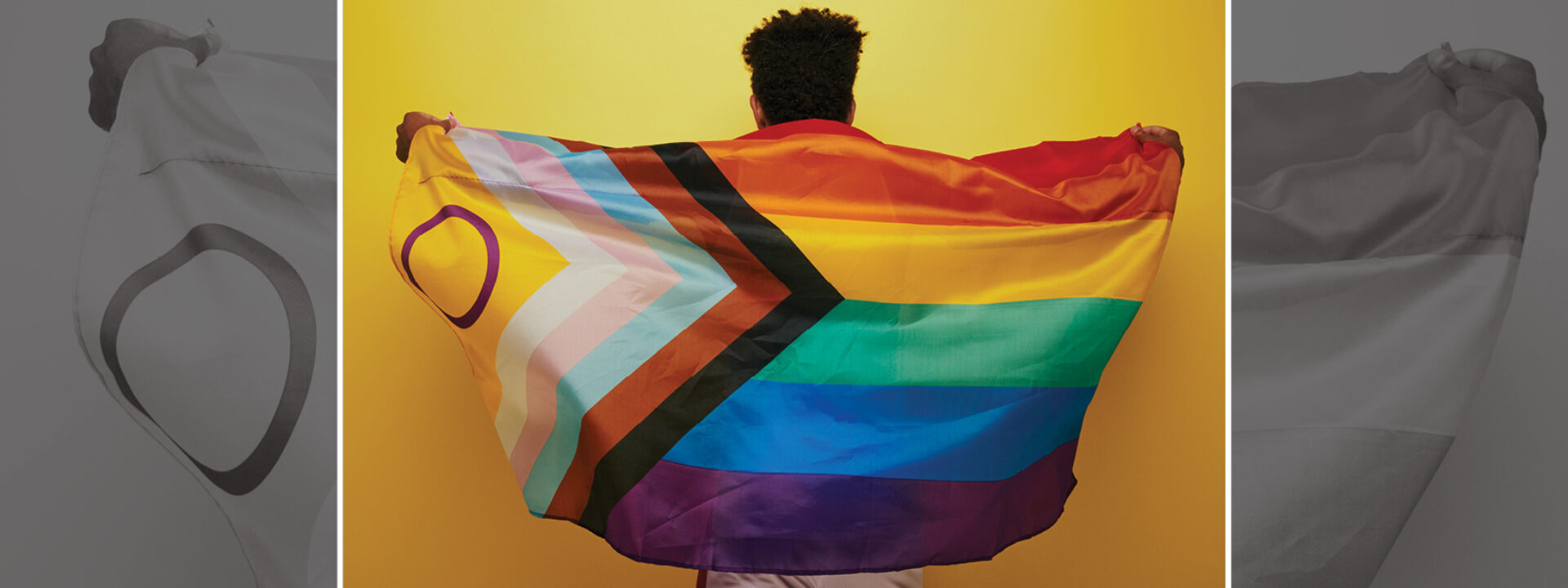
As we celebrate Pride in Canada, it’s important to remember that in many parts of the world, LGBTQI+ people are unsafe and in danger. At least 50 people from Uganda and Kenya are now making a home in Hamilton.
More than 50 gay, lesbian and bisexual asylum seekers from Uganda and Kenya have made Hamilton their home since late last fall after fleeing persecution, violence, and potential death for their sexual orientations.
Despite a recent warning from Canada’s intelligence agency (CSIS) of an increase in domestic anti-2SLGBTQI+ violence, this country remains a safe haven for people from many African countries where state-approved hostility and death penalties are enshrined in legislation. More than 30 of Africa's 54 countries criminalize homosexuality.
In May 2023, Prime Minister Justin Trudeau strongly condemned Uganda’s “anti-homosexuality bill,” passed in May 2023, calling it “appalling and abhorrent.” Just months afterward, he announced the Canadian government would partner with the non-profit organization Rainbow Railroad to protect LGBTQI+* refugees and welcome them to Canada.
Last year, Herbert was able to take advantage of this new agreement when he was publicly outed as gay in Uganda and feared for his life. While he had been enjoying a special meal with his male lover in a restaurant near his home, the woman his father had forced him to marry texted him. When the man he was with saw it, he became jealous and enraged, yelling loudly to let everyone know Herbert was gay.
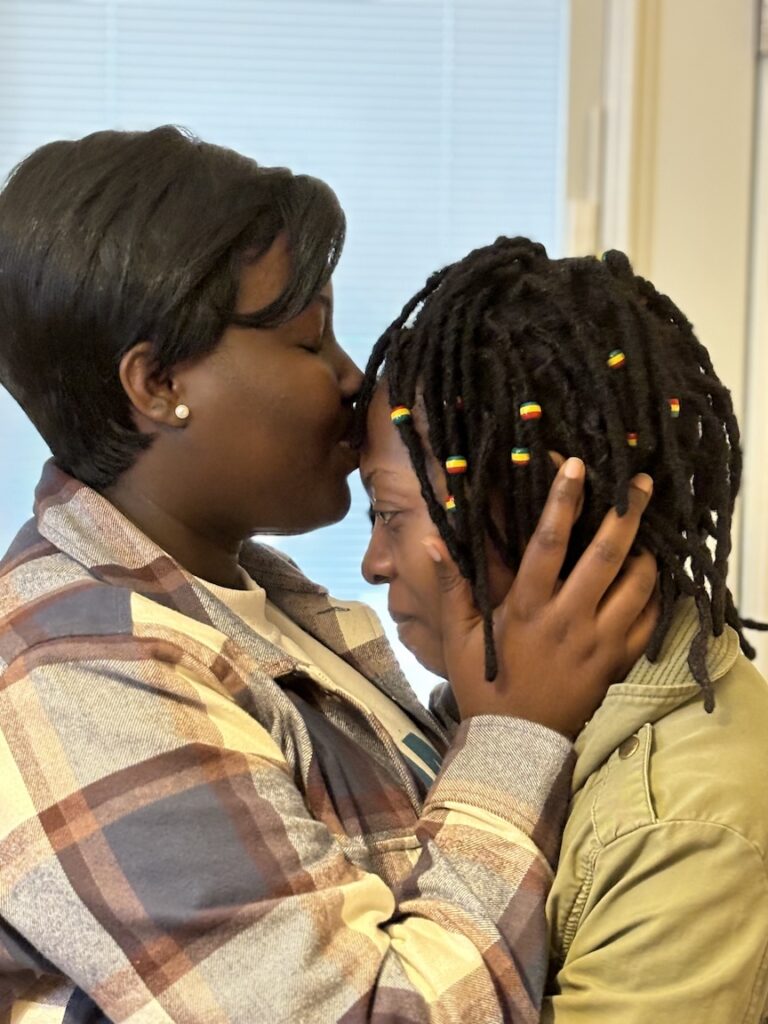
“People stared at us, many of them with jaws dropped and others covering their mouths in shock, because no one knew or even ever imagined that I was in a gay relationship. I got out of the restaurant as soon as possible, knowing very well that those who had witnessed the news would spread it like wildfire.”
He was not wrong. The phone started ringing to alert his wife and wanting to know if the rumours were true.
“I did not wait for the news to spread faster than my exit. I got home and packed a few clothes and headed to Busia, Kenya, to stay with my Aunty Jane. That very night, a group of youth armed with sticks, pangas and other killing objects went to my home but did not find me.”
With the support of his aunt and brother, Herbert was able to purchase a plane ticket to Canada where they knew he would be safe.
Unlike Herbert, Simon did not find safety in his home country of Kenya. Instead, he was dragged through his community when he was outed and beaten so badly, he needed surgery on his eye and has permanent scars and teeth in need of repair. He arrived at Pearson airport in October where he was directed to Hamilton. He stayed at the Salvation Army shelter until mid-March when he and three others from Kenya with similar stories of persecution found a house to share.
Allen, a woman from Uganda, and her partner Mariam have been together 10 years. They were never able to come out to their families in Uganda, knowing they would be ostracized and possibly beaten. They, too, came to Hamilton in October and are enjoying their first taste of freedom as a lesbian couple.
“We never wanted to separate. When I was fired from my job, it became clear we had to leave. We wanted to be free and experience life openly as lesbians, so we found help to come to Canada,” Allen says.
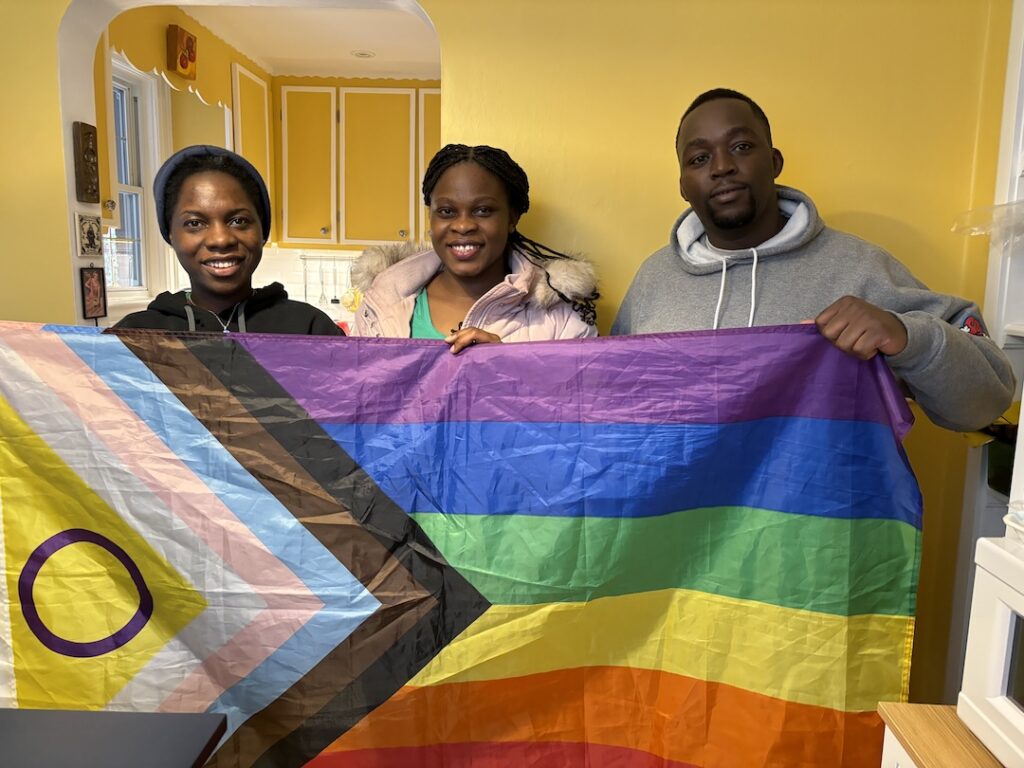
These are just four stories among many people who have had their heaviness transformed to hope with the same freedom Herbert, Simon, Mariam and Allen have tasted. Other experiences include rape, imposed marriages, and former partners being killed.
On March 13, 42 LGBTQI+ people of Kenyan and Ugandan descent showed up to the Niagara Room at Christ’s Church Cathedral to share their stories and find community. Many of the participants have been connected to St. James Anglican Dundas where Lynn Dykeman has been coordinating a furniture program to help refugees settle in their new homes.
Dykeman, a fellow lesbian, co-chaired the first meeting with me. We ran out of food and chairs but not out of bravery and hope. Seventeen women and 25 men arrived, many with their partners, all with questions about their rights and safety in Canada. A steering committee of members was formed to take leadership of the group, now called the Rainbow Kings and Queens.
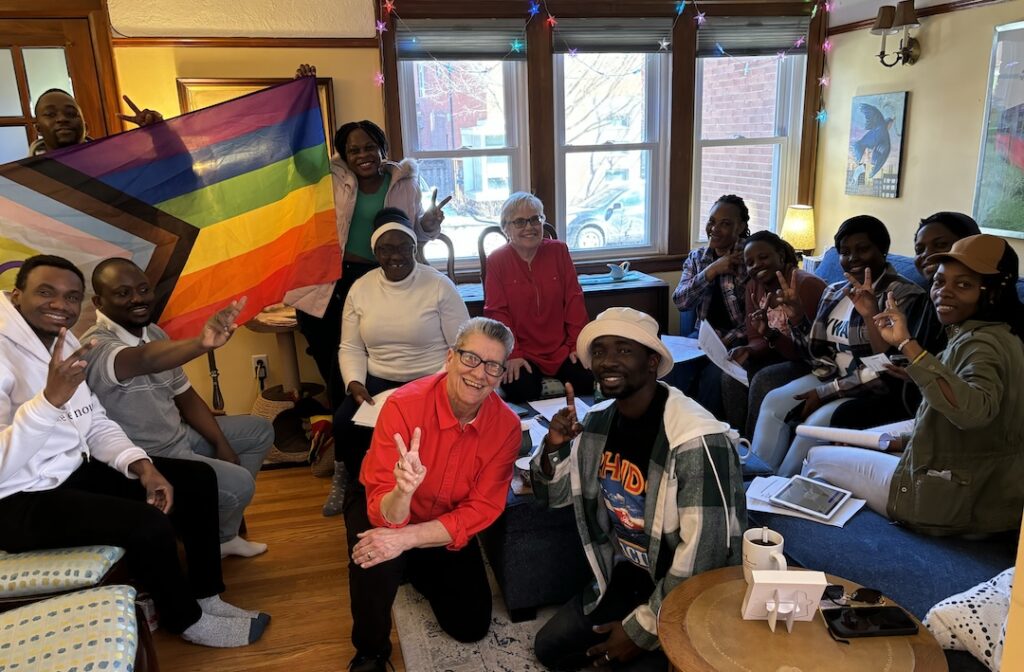
During the first meeting, members wrote down their hopes and dreams for themselves and the group. Four main areas of need arose: emotional support; information and rights as new members of Canada’s 2SLGBTQI+ community; accompaniment to immigration hearings; and social gatherings like Pride.
While housing and employment have been slow to come, most have now moved out of shelters and have their work permits. Some have jobs and all are eager to work.
As Pride month comes in June, they are all hoping to celebrate their newly found freedom and the warmer weather, wrapped in rainbow flags and the love of their new community.
Support for the Rainbow Kings and Queens can be received through the Diocese of Niagara. Contact deirdre.pike@niagaraanglican.ca.
Deirdre Pike is a queer Catholic working for the Anglican Diocese of Niagara. She is the principal facilitator of Queer Positive Power, a training organization specializing in 2SLGBTQI+ inclusion.
(*Though Canada uses 2SLGBTQI+ as the common initialism for the queer and trans communities, two spirit (2S) is not a term that applies to African countries, so it is left off in those references.)
Racheal's story: A journey to a new life in Canada
When I look back on my life, I see pain but now when I look in my mirror in my new home of Hamilton, I see strength. I have been rejected, I have been ignored, I have been cast out.
Did I really deserve this? Was I born only to suffer in this world? What did I do wrong? What terrible crime did I commit to deserve such a punishment? Is my life worth living?
I asked myself these many questions while looking in the mirror in a washroom at the airport as I waited for my flight out of the country that I always called home.
Uganda, a country that is known to be a sweet home for many, was now a nightmare to me. This is why I was flying to Canada, a country I hoped to call my new home.
This all came about as a result of my sexual orientation as a lesbian, an Identity that almost got me killed, made my own family disown me, made my best friends my worst enemies, and also made me an enemy to the whole country at large. Some of what happened to me, l fear to express. The rest of my trauma still haunts me in my dreams until now.
When I first arrived in Canada, I knew that I was somehow safe to express myself but I didn’t know to what extent I could do this. Worst of all, things were not as I expected them to be at first but I had to face my new reality. I had no clothes, no food, and racism was real. I didn’t have anyone I knew and I was sleeping on the street. My days on the street got worse during times of rain because now it was much colder.
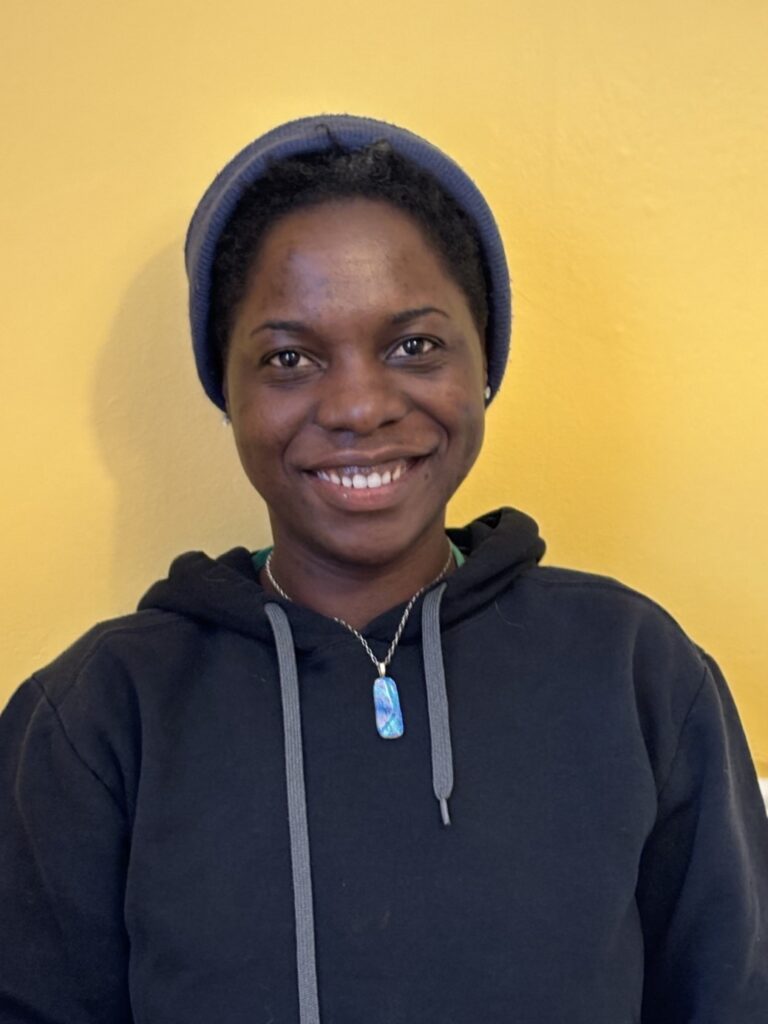
I had silent pain in my heart and I had fear in me. This struggle continued for about two weeks. I used to cry every day and night. As I was starting to lose hope, something amazing happened to me. I was finally referred to a temporary shelter. At the shelter, I came to realize I was not the only one with a haunting life.
I met many Black people who had situations the same as mine or even worse. This made me strong and thankful that I was lucky to be in Canada. Life became better. I still struggle to fully embrace and express my real identity of being a lesbian.
Months later, I was able to find a real place to stay in Hamilton. It was by this time that I came to know of a church called St. James Anglican Dundas. A friend of mine introduced me to Lynn and took me there one Sunday morning. Ever since that day, I started to regain my happiness and the path to my future seemed clearer.
Now there are over 40 of us who have formed the Rainbow Queens and Kings of Hamilton, an LGBTQ group of former Ugandan and Kenyan residents.
When I look back, I only see pain and suffering. But now, all that is in the past. I can now embrace my true identity with pride. I am grateful to be in Hamilton.













